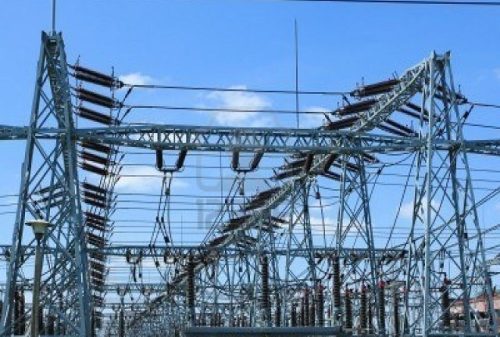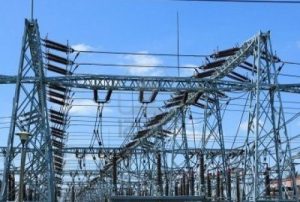society
Discos make N1tn amid grid crisis

Discos make N1tn amid grid crisis
Despite the persistent epileptic power supply nationwide, revenue generation by electricity distribution companies in Nigeria surged to N1.1trn within the 12 months of 2023, a new report has revealed.
The figure represents an increase of N234.4bn or 28.2 per cent from the N831bn generated by the power firms over a similar period in 2022.
This latest data was disclosed in the electricity report released by the National Bureau of Statistics on Monday.
The latest data came despite the sporadic power grid collapses recorded during the year.
Nigeria’s national power grid collapsed 46 times from 2017 to 2023, a report by the International Energy Agency said in a report.
According to the report, Nigerians endured more nationwide blackouts in 2023, especially on September 14 when the grid collapsed due to a fire on a major transmission line.
Despite the challenges, the distribution companies have continued to smile at the bank, allocating outrageous billing to customers.
An analysis of the revenue data showed that the Ikeja Electricity Distribution Company got the highest revenue of N218.6bn, up by 31.7 per cent or N52.7bn from N165.9bn recorded in 2022. It was followed closely by the Eko Distribution Company which got a revenue increase of N52.8bn or 42.3 per cent from N124.8bn in 2022.
Third on the list is the Abuja Electricity Distribution Company, with a revenue generation of N167.4bn from N125.7bn recorded in 2022.
Similarly, Ibadan Electricity Distribution Company got a revenue of N111.3bn, Enugu Electricity Distribution Company got a revenue of N82.5bn, Yola Electricity Distribution Company (N22.3bn), and Benin Electricity Distribution Company (N84.6bn), and Kaduna Electricity Distribution Company (N32.4bn).
Also, Jos Electricity Distribution Company increased its revenue to N38.9bn, Kano Electricity Distribution Company (N55.2bn) and Port-Harcourt Electricity Distribution Company (N74.7bn).
Findings also showed that the increased efficiency in revenue collection might not be unconnected to rise in the overbilling of customers especially those on estimated billing system.
Also, it was observed that Discos were able to capture more customers under estimated billings system.
A further analysis stated that the number of metered numbers increased by 9.38 per cent or 480,833 while the number of customers under estimated billings reduced slightly by 1.73 per cent to 5.8m.
“Similarly, metered customers stood at 5.61 million in Q4 2023, indicating a decrease in the growth rate of 1.32 per cent from 5.68 million recorded in the preceding quarter. On a year-on-year basis, this grew by 9.38 per cent from the figure reported in Q4 2022 which was 5.13 million,” the report read.
Recently, the Nigerian Electricity Regulatory Commission, declared that it would deduct N10,505,286,072 from the annual allowed revenues of the 11 power distribution companies during the next tariff review as part of sanctions over their non-compliance with the capping of estimated bills for unmetered customers.
It stressed that the billing of unmetered customers in their various franchise areas for 2023 revealed non-compliance with the monthly energy caps issued by the commission.
The commission explained that the Discos would pay about 10 per cent of the amount they over-billed their customers between January and September 2023.
The regulator also ordered the Discos to refund the cheated customers in full and to ensure compliance in the future, stressing that to deter future occurrence, a 10 per cent fine had been imposed on the utilities.
Since the start of this year, Nigerians have grappled with intermittent power supply, which has adversely impacted businesses and households, prompting numerous individuals and firms to seek alternative sources of energy.
The poor power supply situation was worsened by the fuel subsidy removal of June 2023, with the jump of the average pump price of petrol from N238.11 per litre to over N600 per litre.
This demand for power has been exacerbated by a succession of heat waves, amplifying the environmental and health-related challenges.
Last week, authorities in public and private hospitals lamented the poor power supply situation amid the high cost of diesel in the country, noting that the poor power supply was affecting healthcare delivery.
On February 2, the Minister of Power, Adebayo Adelabu in a post on X formerly Twitter attributed the main cause of poor power supply in the country to the low supply of gas to generating companies.
He said the poor supply had impacted the quantum of bulk power available on the transmission grid for onward transmission to the distribution load centres nationwide.
“I had crucial discussions with power Generating companies and Distribution companies to address the ongoing issue of blackouts in parts of our country. After investigations, it’s clear that the main cause of poor power supply is the low supply of gas to GenCos,” Mr Adelabu said.
To stem the tide, the Federal Government had threatened to revoke the licences of power Distribution Companies over persistent poor power supply across the country, but the situation has not changed much.
The situation is partially attributed to the over $1bn indebtedness to gas producers who provide the gas required for running thermal gas-fired power plants amid the collapse of the national grid.
Consumers kick
Commenting on the report released by the NBS on Monday, the National Secretary, Nigeria Electricity Consumer Advocacy Network, Uket Obonga, said the Discos made money in 2023 as result of policies initiated by the Nigerian Electricity Regulatory Commission.
These policies, according to Obonga, benefitted the Discos more, but did not increase power supply to consumers, adding that the Discos also failed to improve their networks in order to serve their customers better.
“They are making money and smiling but they have not expanded their network to meet the demands of customers. What is giving them money is the Service Based Tariff that was initiated by NERC, which is questionable; another is the Performance Improvement Plan, which again is questionable.
“On SBT, you are aware that since this year, no consumer can comfortably say he or she has received up to eight hours of supply in a day. Many consumers suffered the same thing last year.’’
“Now, you have over 60 per cent of unmetered customers and the Discos will bring bills to these customers whether these Discos supplied power or not to the power users. And they will still harass customers with threats of disconnection if the customers fail to pay.
“And the regulator of the sector has not done anything concrete to address this. So tell me, why won’t the Discos make money? They are making money by distributing darkness,” the NECAN secretary stated.
Obonga called for sanctions against Discos that fail to meter their customers, stressing that had it been most consumers were metered, it would be difficult for the power distributors to defraud their customers with estimated bills.
Discos sanctioned
“The NERC recently revealed how the Discos overbilled their customers over a certain period of time and declared that the power firms would make refunds. That declaration should be enforced,” he stated.
@Punchng
society
Ramadan: Adron Homes Felicitates Muslims, Preaches Hope and Unity

Ramadan: Adron Homes Felicitates Muslims, Preaches Hope and Unity
Adron Homes & Properties Limited has congratulated Muslim faithful on the commencement of the holy month of Ramadan, urging Nigerians to embrace the virtues of sacrifice, discipline, and compassion that define the season.
In a statement made available to journalists, the company described Ramadan as a period of deep reflection, spiritual renewal, and strengthened devotion to faith and humanity.
According to the management, the holy month represents values that align with the organisation’s commitment to integrity, resilience, and community development.
“Ramadan is a time that teaches patience, generosity, and selflessness. As our Muslim customers and partners begin the fast, we pray that their sacrifices are accepted and that the season brings peace, joy, and renewed hope to their homes and the nation at large,” the statement read.
The firm reaffirmed its dedication to providing affordable and accessible housing solutions to Nigerians, noting that building homes goes beyond structures to creating environments where families can thrive.
Adron Homes further urged citizens to use the period to pray for national unity, economic stability, and sustainable growth.
It wished all Muslim faithful a spiritually fulfilling Ramadan.
Ramadan Mubarak.
society
Underfunding National Security: Envelope Budgeting Fails Nigeria’s Defence By George Omagbemi Sylvester

Underfunding National Security: Envelope Budgeting Fails Nigeria’s Defence
By George Omagbemi Sylvester | Published by saharaweeklyng.com
“Fiscal Rigidity in a Time of Crisis: Lawmakers Say Fixed Budget Ceilings Are Crippling Nigeria’s Fight Against Insurgency, Banditry, and Organized Crime.”
Nigeria’s legislature has issued a stark warning: the envelope budgeting system; a fiscal model that caps spending for ministries, departments, and agencies (MDAs) is inadequate to meet the country’s escalating security challenges. Lawmakers and budget analysts argue that rigid fiscal ceilings are undermining the nation’s ability to confront insurgency, banditry, kidnapping, separatist violence, oil theft and maritime insecurity.
The warning emerged during the 2026 budget defence session for the Office of the National Security Adviser (ONSA) at the National Assembly in Abuja. Senator Yahaya Abdullahi (APC‑Kebbi North), chairman of the Senate Committee on National Security and Intelligence, decried the envelope system, noting that security agencies “have been subject to the vagaries of the envelope system rather than to genuine needs and requirements.” The committee highlighted non-release or partial release of capital funds from previous budgets, which has hindered procurement, intelligence and operational capacity.
Nigeria faces a multi‑front security crisis: persistent insurgency in the North‑East, banditry and kidnappings across the North‑West and North‑Central, separatist tensions in the South‑East, and piracy affecting Niger Delta oil production. Despite declarations of a national security emergency by President Bola Tinubu, lawmakers point to a “disconnect” between rhetoric and the actual fiscal support for agencies tasked with enforcement.
Experts warn that security operations demand flexibility and rapid resource allocation. Dr. Amina Bello, a public finance specialist, said: “A static budget in a dynamic threat environment is like sending firefighters with water jugs to a forest fire. You need flexibility, not fixed ceilings, to adapt to unforeseen developments.”
The Permanent Secretary of Special Services at ONSA, Mohammed Sanusi, detailed operational consequences: irregular overhead releases, unfulfilled capital appropriations, and constrained foreign service funds. These fiscal constraints have weakened intelligence and covert units, hampering surveillance, cyber‑security, counter‑terrorism and intelligence sharing.
Delayed capital releases have stalled critical projects, including infrastructure upgrades and surveillance systems. Professor Kolawole Adeyemi, a governance expert, emphasized that “budgeting for security must allow for rapid reallocation in response to threats that move faster than political cycles. Envelope budgeting lacks this essential flexibility.”
While the National Assembly advocates fiscal discipline, lawmakers stress that security funding requires strategic responsiveness. Speaker Abbas Ibrahim underscored that security deserves “prominent and sustained attention” in the 2026 budget, balancing oversight with operational needs.
In response, the Senate committee plans to pursue reforms, including collaboration with the executive to restructure funding, explore supplementary budgets and ensure predictable and sufficient resources for security agencies. Experts warn that without reform, criminal networks will exploit these gaps, eroding public trust.
As one policy analyst summarized: “A nation declares a security emergency; but if its budget does not follow with real resources and oversight, the emergency remains rhetorical.” Nigeria’s debate over envelope budgeting is more than an accounting dispute; it is a contest over the nation’s security priorities and its commitment to safeguarding citizens.
society
Rev. Mother Kehinde Osoba (Eritosin) Celebrates as She Marks Her Birthday

Rev. Mother Kehinde Osoba (Eritosin) Celebrates as She Marks Her Birthday
Today, the world and the body of Christ rise in celebration of a rare vessel of honour, Rev. Mother Kehinde Osoba, fondly known as Eritosin, as she marks her birthday.
Born a special child with a divine mark of grace, Rev. Mother Eritosin’s journey in God’s vineyard spans several decades of steadfast service, spiritual depth, and undeniable impact. Those who know her closely describe her as a prophetess with a heart of gold — a woman whose calling is not worn as a title, but lived daily through compassion, discipline, humility, and unwavering faith.
From her early days in ministry, she has touched lives across communities, offering spiritual guidance, prophetic insight, and motherly counsel. Many testify that through her prayers and teachings, they encountered God in a deeply personal and transformative way. Near and far, her influence continues to echo — not only within church walls, but in homes, families, and destinies reshaped through her mentorship.
A mother in every sense of the word, Rev. Mother Kehinde Osoba embodies nurture and correction in equal measure. As a grandmother, she remains energetic in purpose — accommodating the wayward, embracing the rejected, and holding firmly to the belief that no soul is beyond redemption. Her life’s mission has remained consistent: to lead many to Christ and guide them into the light of a new beginning.
Deeply rooted within the C&S Unification, she stands tall as a spiritual pillar in the Cherubim and Seraphim Church globally. Her dedication to holiness, unity, and prophetic service has earned her widespread respect as a spiritual matriarch whose voice carries both authority and humility.
As she celebrates another year today, tributes continue to pour in from spiritual sons and daughters, church leaders, and admirers who see in her a living reflection of grace in action.
Prayer for Rev. Mother Kehinde Osoba (Eritosin)
May the Almighty God, who called you from birth and anointed you for His service, continually strengthen you with divine health and renewed vigour.
May your oil never run dry, and may your prophetic mantle grow heavier with greater glory.
May the lives you have nurtured rise to call you blessed.
May your latter years be greater than the former, filled with peace, honour, and the visible rewards of your labour in God’s vineyard.
May heaven continually back your prayers, and may your light shine brighter across nations.
Happy Birthday to a true Mother in Israel — Rev. Mother Kehinde Osoba (Eritosin).
More years.
More anointing.
More impact.
If you want this adapted for a newspaper page, church bulletin, Facebook post, or birthday flyer, just tell me the format and tone.
-

 celebrity radar - gossips6 months ago
celebrity radar - gossips6 months agoWhy Babangida’s Hilltop Home Became Nigeria’s Political “Mecca”
-

 society6 months ago
society6 months agoPower is a Loan, Not a Possession: The Sacred Duty of Planting People
-

 society5 months ago
society5 months agoReligion: Africa’s Oldest Weapon of Enslavement and the Forgotten Truth
-

 news6 months ago
news6 months agoTHE APPOINTMENT OF WASIU AYINDE BY THE FEDERAL GOVERNMENT AS AN AMBASSADOR SOUNDS EMBARRASSING







